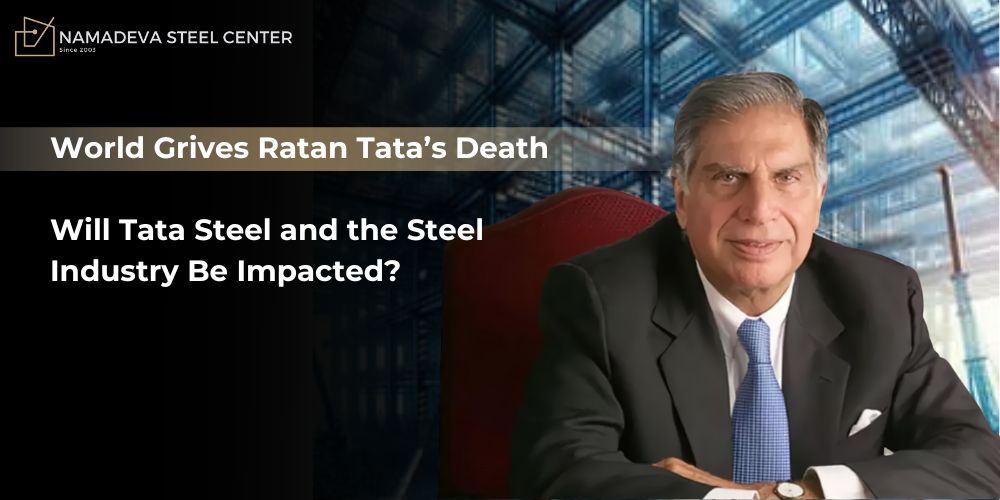The passing of Ratan Tata on October 9, 2024, marks the end of an era for India’s industrial sector. As the former chairman of Tata Group, his leadership not only expanded the company’s global presence but also transformed Tata Steel into a global powerhouse. While his death is a significant emotional loss, stakeholders are now evaluating what impact this might have on Tata Steel and the broader steel industry.
Will Tata Steel Be Affected?
Ratan Tata’s visionary leadership helped Tata Steel become one of the largest steel producers in the world, acquiring companies like Corus in Europe. However, since his retirement in 2012, Tata Steel has been operating under the leadership of executives from Tata Sons, ensuring continuity and long-term stability. The company’s strategic direction is now shaped by policies already in place, meaning the operational impact of Tata’s death may be minimal in the short term.
However, investor sentiment could see some turbulence. Tata’s death might stir concerns about Tata Steel’s future vision and the execution of its decarbonization strategies amid growing pressure on the steel industry to reduce emissions by 90% by 2050. The company remains central to Tata Group’s ESG efforts, and stakeholders will be watching closely to ensure that these initiatives remain on track.
Impact on the Steel Industry
Tata Steel operates in an industry that contributes 10% of global CO₂ emissions. The steel sector is under immense pressure to adopt sustainable practices through technologies like electric arc furnaces and hydrogen-based production. Tata Steel is already part of this transition with plans to align with India's net-zero targets. However, disruptions in Tata Group leadership may slow decision-making during this critical phase of change.
The steel industry’s broader challenge is balancing green innovations with profitability. With green steel projects requiring high capital investments and uncertain demand due to premium pricing, a well-coordinated leadership transition at Tata Steel will be essential. Any delays in sustainable investments could impact both Tata Steel’s and India’s position in the evolving global steel economy.
Ratan Tata’s death will not derail Tata Steel’s operations, but maintaining the company’s strategic course will require steady leadership and clear communication. As the global steel industry pivots toward a low-carbon future, Tata Steel’s ability to continue its sustainability drive will be crucial for both the company’s and India’s industrial competitiveness.
The Tata Group has weathered leadership transitions in the past, and with proper planning, this transition can also be managed smoothly. Ratan Tata's legacy will undoubtedly influence the company's future, but it will be the actions taken now that determine whether Tata Steel remains at the forefront of sustainable steel production.



